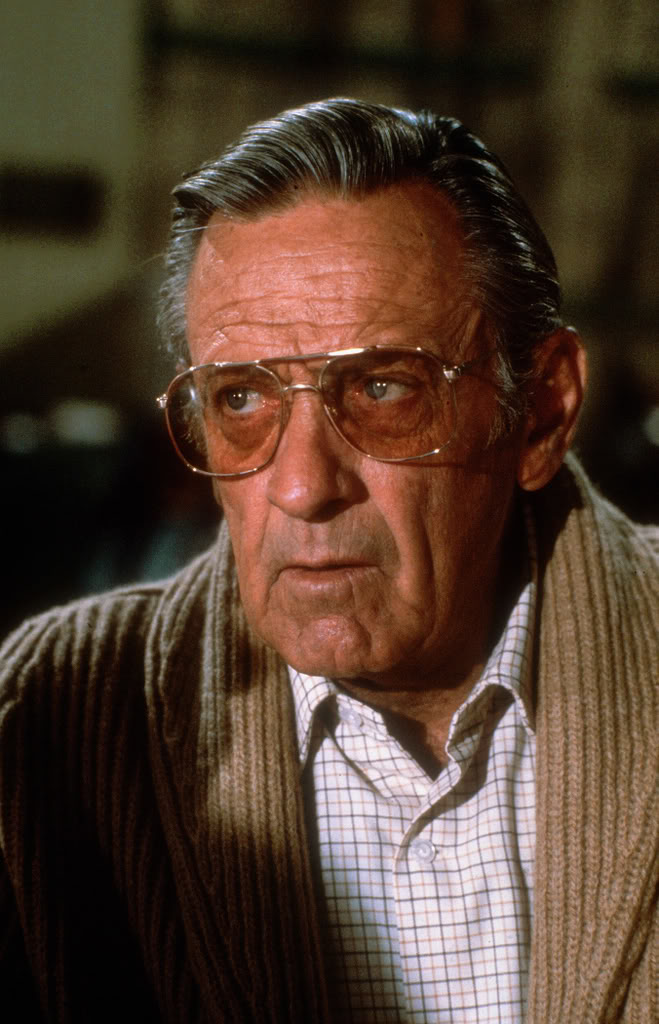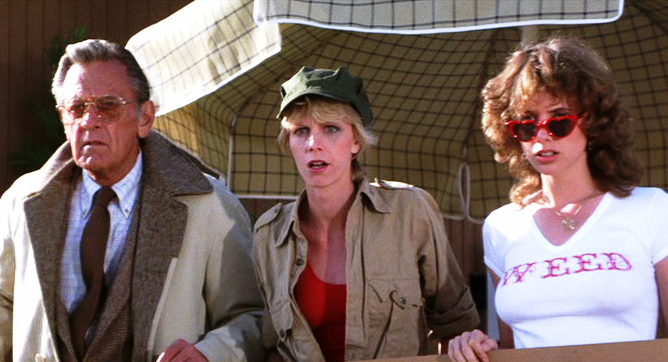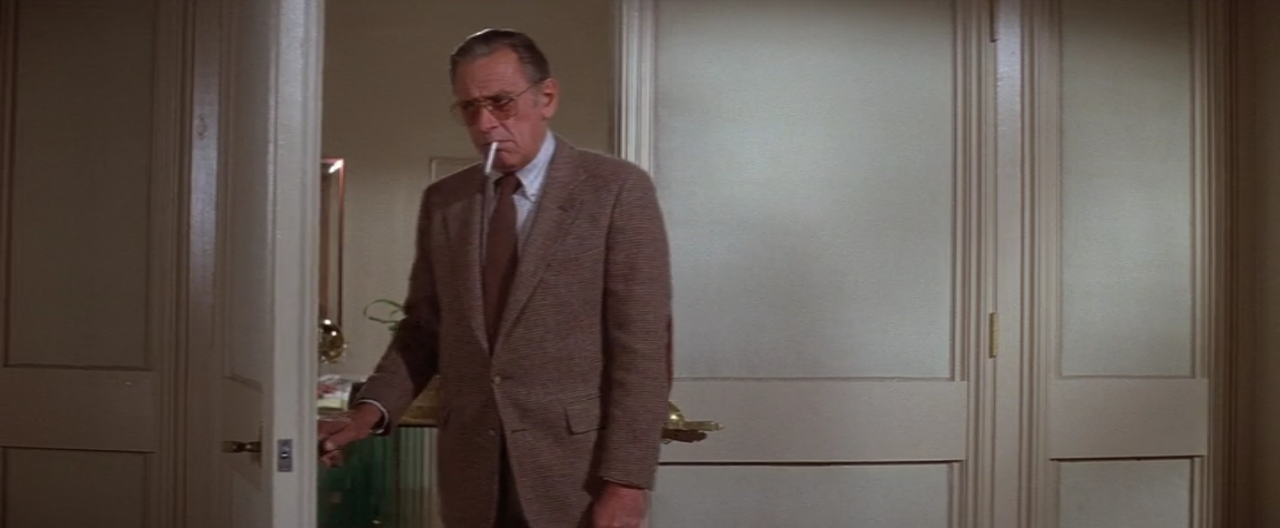Mini William Holden Centennial celebration. We're beginning, oddly enough, with his final film. Here's Tim Brayton...
 The 1981 film S.O.B. wasn't meant to be William Holden's final film: the star died in a household accident a few months after the film premiered, at a mere 63 years old. But it offers a pleasing symmetry to his career to end this way: Holden's big breakthrough, in 1950, was the acid-laced Hollywood satire Sunset Blvd., and there's a comforting rightness that it was with an acid-laced Hollywood satire that his career would end.
The 1981 film S.O.B. wasn't meant to be William Holden's final film: the star died in a household accident a few months after the film premiered, at a mere 63 years old. But it offers a pleasing symmetry to his career to end this way: Holden's big breakthrough, in 1950, was the acid-laced Hollywood satire Sunset Blvd., and there's a comforting rightness that it was with an acid-laced Hollywood satire that his career would end.
Not that S.O.B. has anything on Sunset Blvd., though it's a compelling oddity, and it's one of the few films made by writer-director-producer Blake Edwards after his 1960s heyday that offers all that much to chew on. The film is a deeply caustic fable of how superproducer Felix Farmer (Richard Mulligan) churned out the biggest money-loser in Hollywood history one day, went insane from the stress of it, and decided to turn his family-friendly musical into a pornographic extravaganza...

It's in part Edwards's grouchy attack on what he clearly views as the licentiousness of modern fimmaking, in much greater part his angry, mocking attack on studio meddling and micro-managing, and the toxic culture of "succeed or die" that had come to grip the American film industry in the ashes of the New Hollywood Cinema of the 1970s...
The film is a messy sprawl, at least partially by design, without a center or even a single narrative throughline. Holden is possibly the actor with the most screen time (and receives second-billing, after Edwards's wife Julie Andrews, who infamously went topless in one scene), but he's nowhere close to the film's protagonist; it has no such thing. Instead, Holden's character, film director Tim Culley, is one of several people attempting to contain Felix's madness before it escapes into the press, before largely disappearing for a huge chunk of the movie's second half.
Which isn't to say that Holden isn't doing good work or that he's embarrassing himself: as sloppy and angry as S.O.B. is, it provides a lot of opportunity for sharp line deliveries, and Holden makes the most of that. He's also one of the only members of the stuffed cast who has clearly elected to play his character as a human being with recognizable, if warped motivations, instead of a crude joke.

The role feels descended, in a way, from Holden's tired television executive in the more focused 1976 satire Network: there's a similar combination of old man's fatigue and the oily grandstanding that comes from a lifetime of work in the smarmy world of media business. S.O.B. unquestionably asks him to ramp up the oiliness and subtract some of the humanity, and this Holden does, using an unfriendly plastic smile and forced upbeat energy end to create one of the most cynical characters in an acting career fueled on cynicism. Right from his introduction, bursting into a room with a cigarette hanging on his lip, causing his brisk dialogue to come out slurry and arrogant, Holden's take on Culley is that of a man whose solitary remaining interest or skill lies in out-talking everybody else. It's a sour portrayal of the director as a huckster and martinet, but in some ways the least sour figure in the whole film; Holden never indulges Edwards's love for live-action cartoon characters as much as most of his co-stars, and feels more like a person by the end of the film than just about anybody else onscreen.
This isn't to say he provides the film with its heart; it has no heart. But Holden does anchor the film's satire in reality like no one else onscreen. It's an odd part in an odd movie, but it feels right as the end to this career that he provides the one genuinely sordid human being in a sea of caricatures.